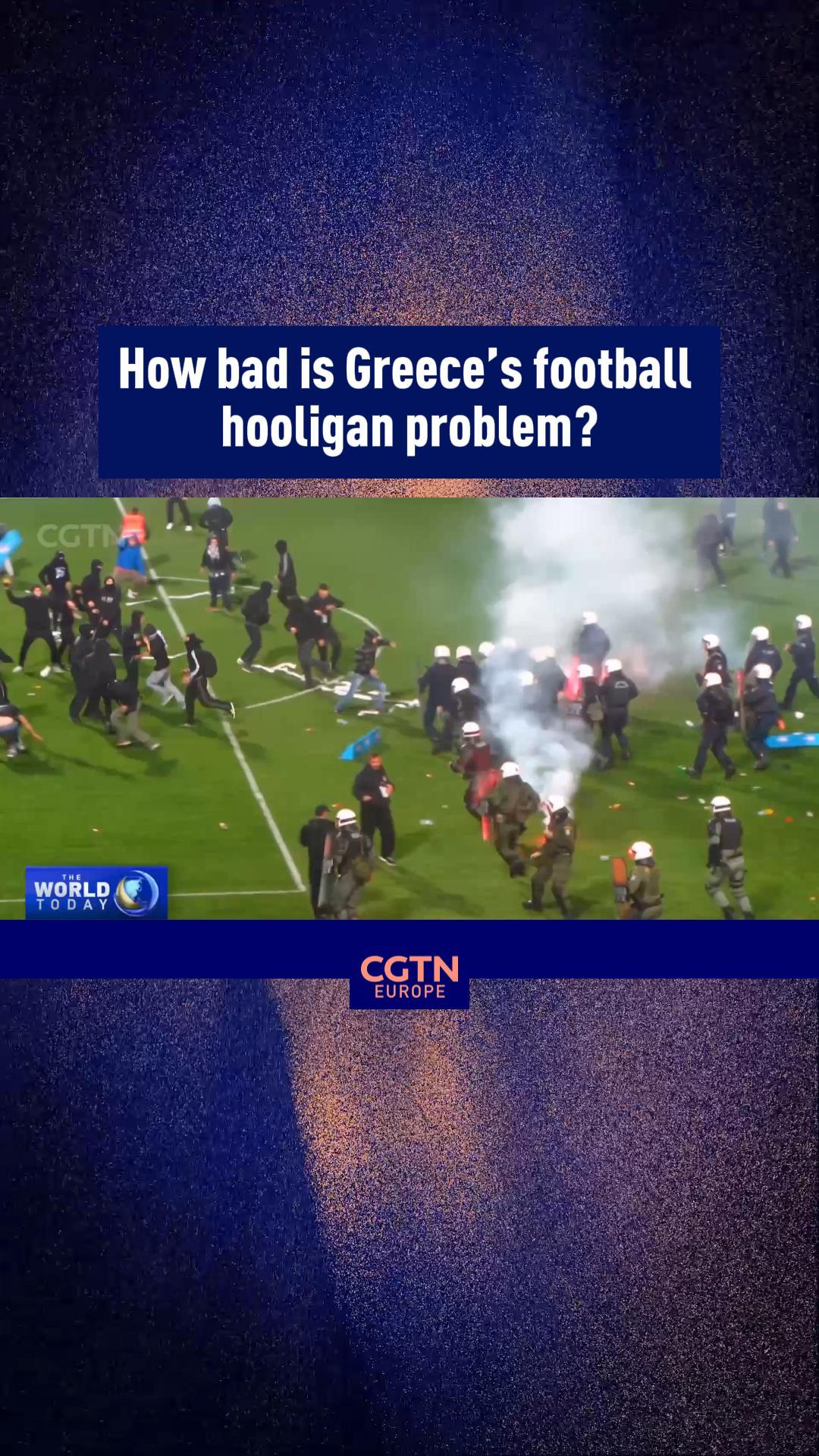02:43

Yet another incident of football fan violence in Greece over the past week has left a police officer in intensive care fighting for his life after being attacked by hooligans in Athens.
Fan violence has increased in Greece over the past few years with numerous incidents taking place. Last year alone there were two deaths and over a hundred people injured.
It's prompted the government to take additional measures.
"We will install high-quality cameras, up to the UEFA standards in all stadiums of the first league," said the Greek government's spokesperson, Pavlos Marinakis in a press conference." All first-division games will be played without fans for the next two months, and after that, they will only enter with their ID," he added.

Fan behavior at football matches is under the microscope like never before. /Vladimir Rys Photography/Getty Images via CFP
Fan behavior at football matches is under the microscope like never before. /Vladimir Rys Photography/Getty Images via CFP
All football matches in Greece were suspended over the weekend after a police officer was attacked by a mob of fans last Thursday. The 31-year-old was hit by a nautical flare on his thigh, causing severe bleeding.
This comes after a 29-year-old was killed by rival football fans in Athens last August during Champions League qualifiers.
These incidents have caused uproar in Greek society, putting pressure on both the government and police to take additional measures to fight sports violence.
But the police representatives say they believe that the sentences are just a slap on the wrist, encouraging troublemakers to more violence.
"It doesn't matter what we do, how many arrests we make, or how many we bring in, if after the arrest once taken to court these people don't receive sentences or criminal convictions," Head of the Police Union, Stavros Balaskas told CGTN. "If the troublemakers don't get punished or feel there are laws in place, they will just do it again with impunity," he added.
Hooliganism, and football or other sports-related violence, is not a new problem in Greece.
Despite repeated efforts by the government and police to address it, experts say hooliganism is deeply rooted in society.
"Since the 60s most football stadiums, and in other sports as well, have been used to recruit gang members, but also to push for a political agenda," Professor of social and hooligan behaviour, Anastasia Tsoukala, told CGTN. "Extreme political ideologies, such as far-right or far-left, through sports, can show their power," she added.
Greece has seen a return to relative political stability since the chaos of the financial crisis 15 years ago, but sports-related violent behavior is proving harder to shake off.

Subscribe to Storyboard: A weekly newsletter bringing you the best of CGTN every Friday